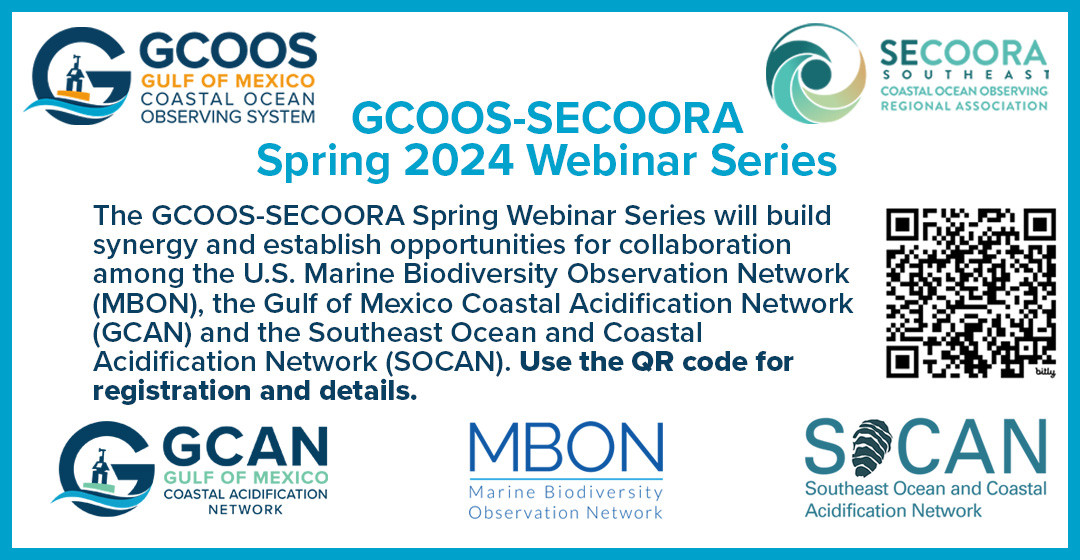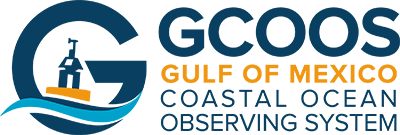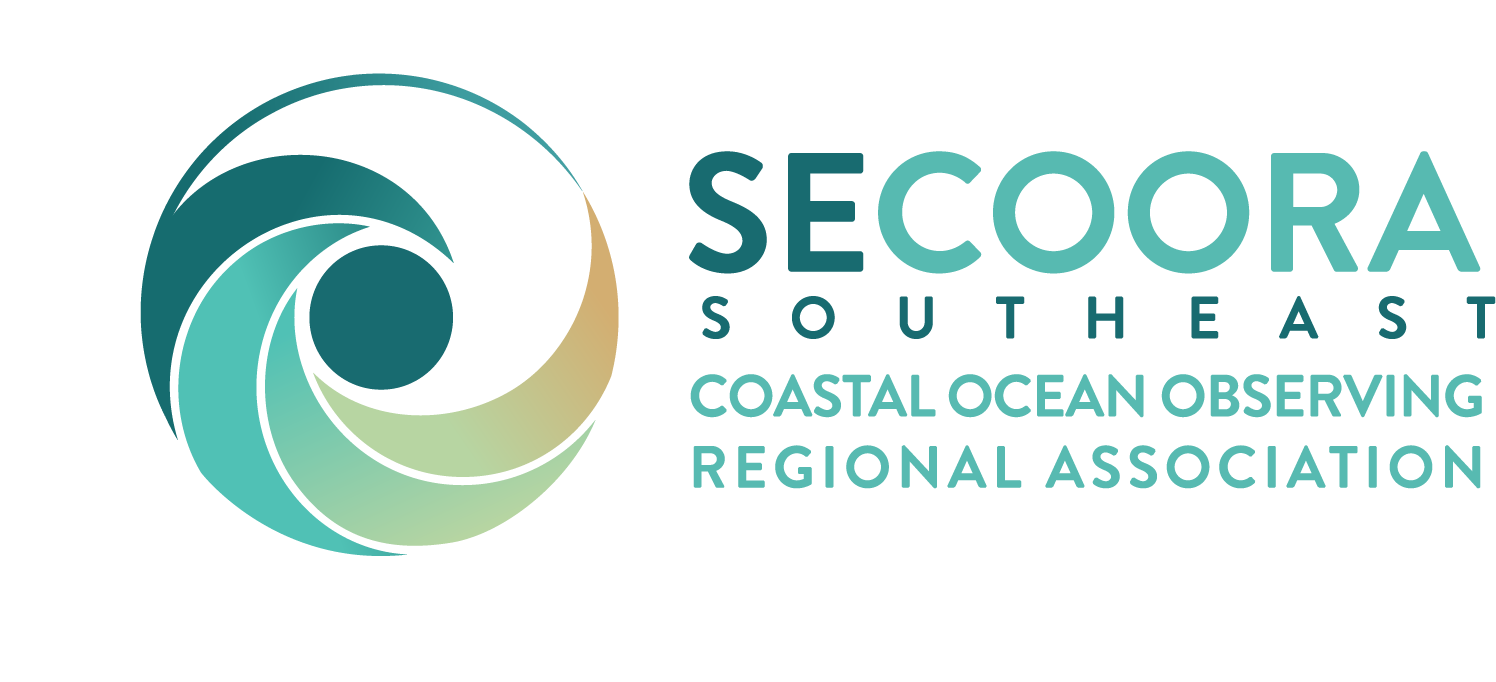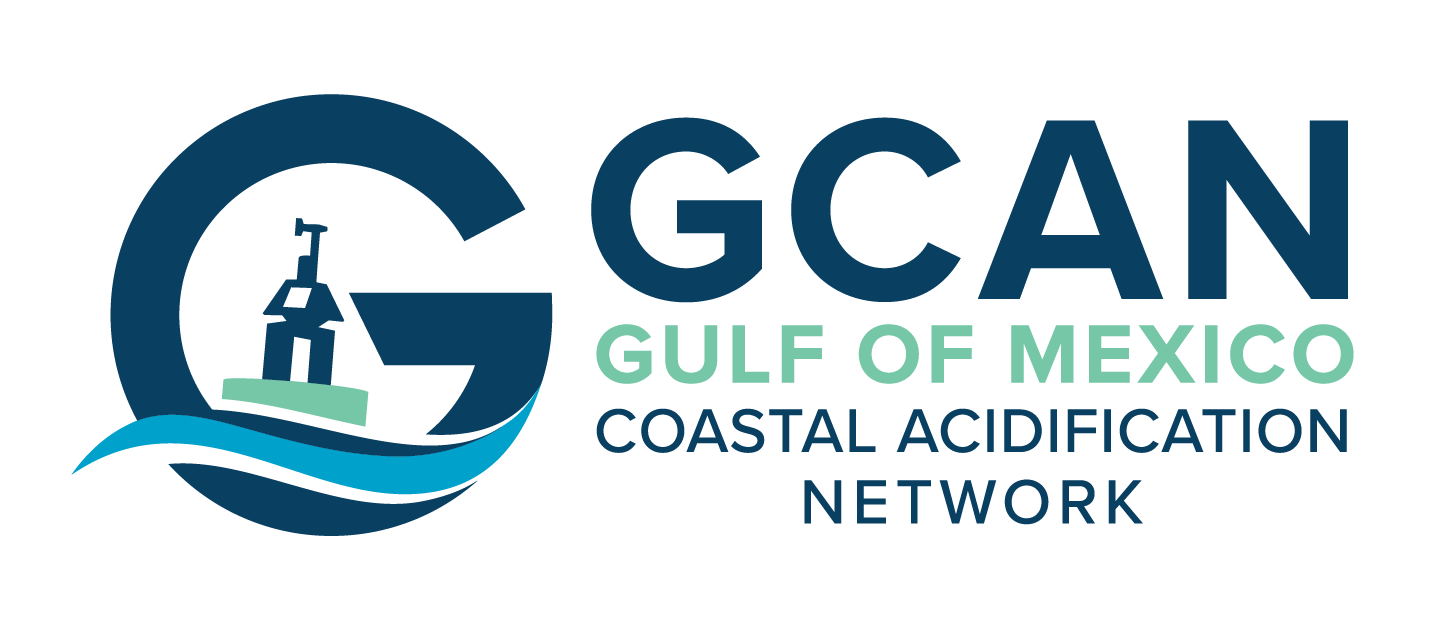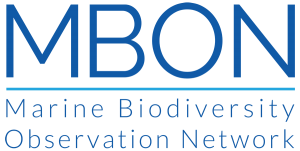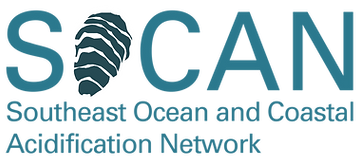GCOOS and SECOORA have teamed up for a Spring Webinar Series focused on establishing collaborative opportunities among the U.S. Marine Biodiversity Observation Network (MBON), the Gulf of Mexico Coastal Acidification Network (GCAN) and the Southeast Ocean and Coastal Acidification Network (SOCAN).
The goal is to build synergy across the networks to advance science in support of resource management and the Blue Economy. Series objectives include:
- Advancing understanding of the state of MBON and OA science, with emphasis on the southeast Atlantic and Gulf of Mexico;
- Identifying opportunities to bridge MBON and the OA fields of science;
- Synthesizing lessons learned across MBON and OA activities to develop new partnerships and identify collaborative research opportunities.
Organizing panel members are Dr. Chris Simoniello, GCOOS; Jennifer Vreeland-Dawson, GCOOS/GCAN; Dr. Kim Yates, USGS/GCAN; Dr. Emily Hall, MML/SOCAN; Jennifer Dorton, SECOORA; Emily Noakes, SECOORA.





